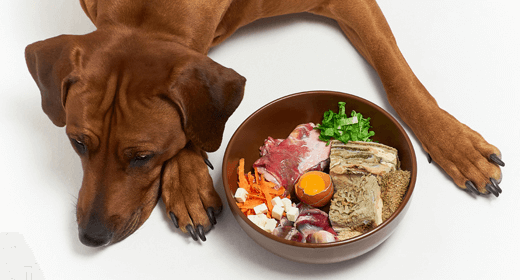

Bringing a new furry friend home is one of the most exciting things you will experience. And as a pet parent, the first thing you need to do is lay down a puppy vet care plan. Hence, it is essential that you take your new, little pet for a general check-up within the first week of bringing it home. During this vet visit, you can learn about your dog’s vaccination schedule, nutritional requirement, training needs, and more. It is crucial to seek professional medical advice to make sure that you do not overlook any aspects that may need immediate attention. If you are not sure why and when you need a vet for your dog, this article is for you. It gives you a gist on how often you should visit your vet, vaccinations, annual check-ups, and more.
A veterinarian is going to help you keep your floofy healthy and in check. A puppy, just like a senior dog, will require more attention. So, if you are wondering how often a puppy should go to a vet, here’s your answer: once every 3-4 weeks. If your puppy requires special attention, your veterinarian will recommend frequent follow-ups. If this is your pup’s first vet visit, contact the breeder for information on vaccination and any other medical history. If you have a rescue pup, let your vet know. It will help your doctor assess your pup’s case better.
Moreover, take your puppy to the doctor immediately if you notice any of the following issues:
Note: Even if your dog comes with a documentation of up-to-date vaccination shots, you should take it to the vet at least once to get a green signal.
We humans visit our family doctors at least once a year even if we do not exhibit any symptoms. Similarly, even your fur baby needs to be taken to the vet once a year for annual vaccination and a general medical check-up The vet will check your baby’s heart, lungs, ears, eyes, look for any abnormal growth, and do other basic tests.
Based on the medical examination, your vet may recommend certain dietary changes, physical activities, and a dental care routine. Follow their recommendations religiously to improve your puppy’s health! Here are a few things you can carry during your dog’s yearly appointment:
Puppies are born with some immunity passed on to them by their mothers. However, they start losing their inherited immunity once they turn 6 to 8 weeks old. Therefore, it becomes imperative that you start vaccinating your puppy around that time. Their innate habit of sniffing and licking everything that strikes their fancy exposes dogs to a plethora of diseases. Thankfully, a vaccination plan can shield them against fatal viruses and diseases. Vaccine shots are administered when puppies turn 6-8 weeks old, and they are repeated every 2-4 weeks until the puppy is 16 weeks of age or older. Sometimes, a vet may recommend an earlier vaccination regimen, starting at 4 weeks of age in the face of an outbreak or when the mother has an unknown vaccination history. You can ask your vet for a vaccination schedule customized for your puppy.
As kids, we were inoculated against several health issues with different types of vaccination. Similarly, your dog too needs to be vaccinated against multiple diseases such as rabies, distemper, hepatitis, etc. So, Let’s take a look at the types of vaccines commonly administered to your dog:
The above vaccines may come in different combinations; hence, consult your vet and get a proper understanding of
During the first year, your puppy will visit its vet frequently to get vaccination shots. Once your dog is fully vaccinated, you can consult your vet as and when required. However, do not forget to go for annual vet examinations to rule out serious health problems.
If this is your puppy’s first vet visit, you should speak with the breeder or shelter to understand if they have already administered any vaccinations on your puppy. Moreover, your vet must know if the deworming process has already begun. In case your pup is on any medicines or supplements, carry it along. Inform the veterinarian about its diet or any concerning issue.
If the puppy is less than 4 months old, you should take your pup to the vet every 3 or 4 weeks. Once it is eligible for vaccinations, your veterinarian shall provide you with a schedule. Take your puppy to the vet as per that schedule to ascertain that your puppy is fully vaccinated.


A balanced diet with high-quality protein is essential for your dog's optimal wellness.
Author: Dr. Saza Curaming
Dogs are semi-carnivores. They can be nourished by protein from animal sources, plant sources or a combination of both. Although dogs are often fed a plant-based diet, they are not herbivores.
The difference between animal-based protein and plant-based protein sources is that animal-based ones incorporate chicken, lamb, fish meal, and beef while plant-based protein sources include corn-gluten and soybean meal.
Similar to their carnivorous ancestors–wolves, coyotes, foxes, and jackals, the body structure of dogs is optimized for eating meat which is relatively easier for them to digest than a plant-based diet.
Even though dogs are semi-carnivores, it is important to not leave out animal-based proteins from their diet. Feeding our dogs meat-based products are closely related to their natural ancestral diet. There are three main reasons animal-based proteins are better suited for our furry friends than plant-based proteins.
Including protein in your pet dog’s diet serves several functions. For one, a high-quality protein food for dogs can provide amino acids. Amino acids play a key part in building hair, skin, nails, muscles, tendons, ligaments, and cartilage. Protein plays a key role in hormone and enzyme production.
Amino acids are building blocks and are considered critical to our furry best friend. Different studies have shown that out of the 20 amino acids, 10 of these are called non-essential and can be made by your dog when they need it.
A dog’s need for amino acids will also change depending on age and condition. As dogs age, their body composition and muscle-specific proteins decline and for that reason, giving them protein in their meal helps them maintain a healthy body throughout the years.
That said, it goes without saying that puppies require sufficient protein for growth. According to a study, a puppy's diet should consist of at least 22% protein. For an adult dog, 18% of protein should be incorporated into their everyday meal.
Animal protein sources contain an average of 35% higher protein concentration. It contains higher doses of calcium, phosphorus, omega 6, methionine, cystine, and taurine.
While protein can be derived from plants, the canine digestive system typically has an easier time utilizing animal-sourced protein. Our dog's gastrointestinal tract is not designed to digest large amounts of plant-based products.
To deliver a healthy balance of amino acids to support your dog's health and vitality, IAMS created a recipe that uses chicken as their number one ingredient and aids in maintaining healthy digestion, immune system, skin and coat, and even provides dental care support that is developed with veterinarians.
Ready to achieve your dog’s optimal health with an animal-based protein food? For more information about IAMS Dog, visit https://iams.asia/ph. IAMS Dog is available at all leading supermarkets and grocery stores nationwide.